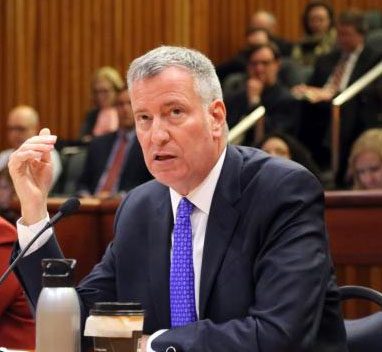
Photo: NY Daily News
Bill de Blasio shlepped to Albany this week to convince the state senate to extend mayoral control of NYC schools for seven more years. Control had been granted to his predecessor, Mike Bloomberg, for seven years in 2002, and extended for six additional years in 2009.
When de Blasio asked the legislature in 2015 to approve mayoral control on a permanent basis, the senate rebuffed him, granting him a one-year extension instead.
Legislators stated they wanted to assess the city’s educational progress before making a permanent commitment. Left unstated was that they didn’t want to give up their opportunity to use periodic renewal of mayoral control as a way to remind de Blasio and his successors that the city is a creature of the state.
Albany’s legislators also know that a mayor who must ask them repeatedly for authorization to run his school system will be more apt to urge his commissioners to be responsive when legislators seek help for their constituents.
Governor Andrew Cuomo stated early this year that he favors a three-year term for mayoral control.
Predictably, de Blasio’s supporters included his popular schools chancellor, Carmen Fariña. Just as predictably, de Blasio received support from Partnership for New York City CEO Kathryn Wylde, who was quoted in The Wall Street Journal as commenting after the meeting that “The business community would like to see permanent extension and not have this be a political issue.”
Evidently, like the state legislators, Wylde understands that the issue is not only about education but also is about fungible power: A mayor free of obligations to Albany’s elected officials is a mayor freer to support the needs of his most influential constituency, the city’s business community.

 Leonie Haimson
Leonie Haimson 

 Since July, 2004, when Public Law 108-271 changed the name of the General Accounting Office to the
Since July, 2004, when Public Law 108-271 changed the name of the General Accounting Office to the 
